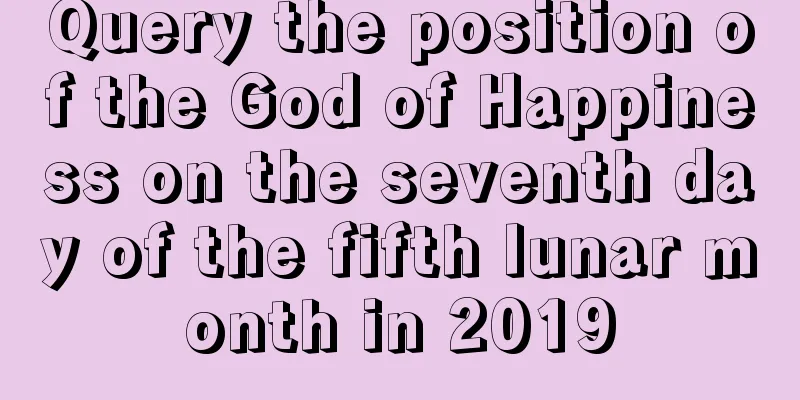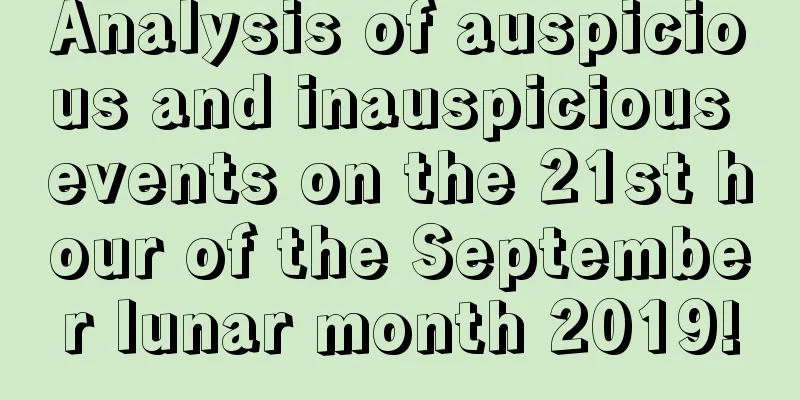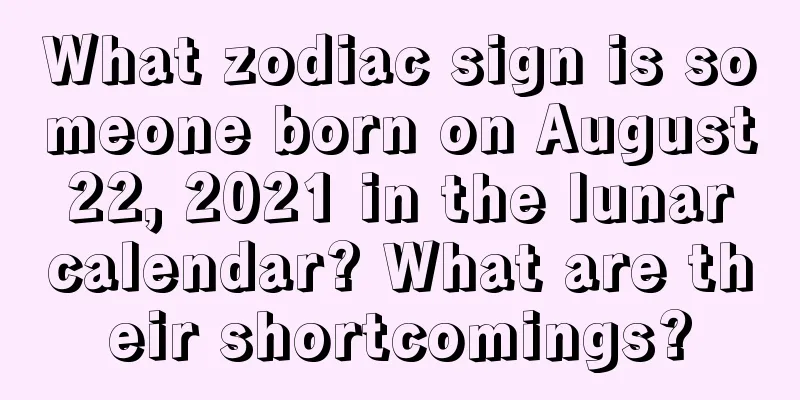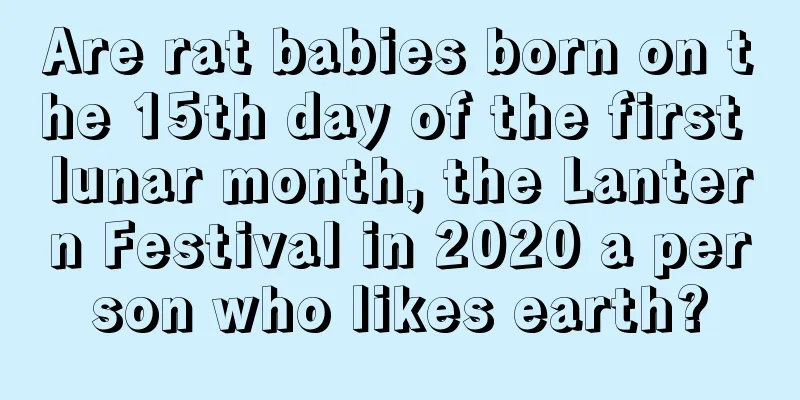Analysis of the name of the Dragon Boat Festival: What are the nicknames of the Dragon Boat Festival? What is the basis?
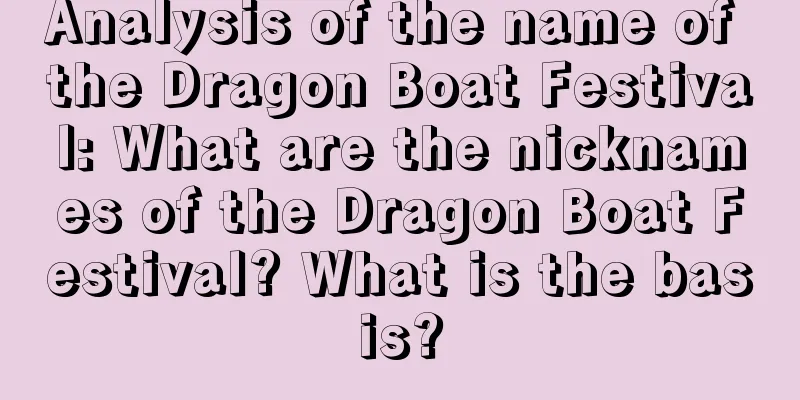
Introduction: Our country is a traditional country with rich traditional cultural festivals, and the Dragon Boat Festival is one of them. However, the Dragon Boat Festival has more than one name; it has other names as well. So what are the nicknames for the Dragon Boat Festival? What is the basis? Let’s follow the editor to find out. The Dragon Boat Festival has been one of the most important traditional festivals throughout the ages, with a series of folk customs such as dragon boat racing and eating rice dumplings. Today, the Dragon Boat Festival is one of the world's cultural intangible heritage that my country has applied for.What is Dragon Boat Festival?The Dragon Boat Festival falls on the fifth day of the fifth month of the lunar calendar every year. According to the "Jingchu Sui Shi Ji", because people climb high places in midsummer when the sun is in the sky, and May is midsummer, its first noon is the day for climbing high places in the sky, so the fifth day of May is also called the "Dragon Boat Festival." In addition, the Dragon Boat Festival is also called "Midday Festival, May Festival, Dragon Boat Festival, Bathing Orchid Festival, Poets Festival", etc. The Dragon Boat Festival is a traditional cultural festival popular in China and other countries in the Chinese cultural circle. The Dragon Boat Festival originated in China. It was originally a totem sacrifice festival held by tribes who worshipped the dragon totem in the ancient Baiyue region (the middle and lower reaches of the Yangtze River and the area to the south). Before the Spring and Autumn Period in the Baiyue region, there was a custom of holding tribal totem sacrifices in the form of dragon boat races on the fifth day of the fifth lunar month. Later, because the poet Qu Yuan from the Chu State (now Hubei) during the Warring States Period committed suicide by jumping into the Miluo River with a stone in his arms on that day, the rulers used the Dragon Boat Festival as a festival to commemorate Qu Yuan in order to establish a label of loyalty to the emperor and patriotism; some areas also use the term "Dragon Boat Festival" to commemorate Wu Zixu and Cao E. The Dragon Boat Festival is known as one of the four major traditional festivals of the Chinese folk, along with the Spring Festival, Tomb-Sweeping Day and Mid-Autumn Festival. Since ancient times, the Dragon Boat Festival has included festival activities such as dragon boat racing and eating rice dumplings. Since 2008, the Dragon Boat Festival has been listed as a national statutory holiday. In May 2006, the State Council included it in the first batch of national intangible cultural heritage list; in September 2009, UNESCO formally reviewed and approved the inclusion of China's Dragon Boat Festival in the World Intangible Cultural Heritage, making it the first Chinese festival to be selected as a world intangible cultural heritage.What are the nicknames for the Dragon Boat Festival? What is the basis?According to Jingchu Sui Shi Ji, the Dragon Boat Festival is celebrated because people climb high places in midsummer when the sun is in the sky. May is midsummer, and the first noon of the month is the right day for climbing high places with good weather. Therefore, the fifth day of May is called the "Dragon Boat Festival."The Double Fifth Festival belongs to the twelve zodiac signs. The fifth month of the lunar calendar is the Wu month. Wu and Wu have the same pronunciation, and five and five are repeated, so the Dragon Boat Festival is also known as the "Double Fifth Festival" or "Double Fifth Festival". In some places it is also called the "May Festival". Tianzhong Festival The ancients believed that on May 5th, the yang energy was at its highest point in the sky, so they called this day "Tianzhong Festival". The Dragon Boat Festival is in midsummer, a season when skin diseases are prevalent. It was a custom in ancient times for people to bathe in orchid soup to remove dirt. The "Da Dai Li" of the Han Dynasty said: "Bathe in orchid soup at noon." When the ancients ate zongzi during the Dragon Boat Festival, they would play a game in which each person would compare the length of the zongzi leaves they untied, with the tallest person being the winner. Hence, it is also known as the "Zongzi Untying Festival". The Ming Dynasty's "Wanshu Miscellaneous Notes" states: "Daughter's Day in May is celebrated by tying a Dragon Boat Festival rope, wearing moxa leaves, and five poisonous spirit talismans. From the first to the fifth day of May, Wan custom dresses up little girls in all their best. Married girls also return to their parents' homes. Hence it is called the Daughter's Day." According to the ancient custom in southern Hunan, on the fifth day of the fifth lunar month when summer comes, people hang mugwort on the door and take a bath with mugwort to repel mosquitoes. People believe that baptism can drive away malaria and allow them to safely survive the summer mosquito-infested season. The ancients believed that "Double Fifth" was a taboo day, as the five poisonous animals would appear at this time. Therefore, most of the customs of the Dragon Boat Festival are to drive away evil spirits and avoid poison, such as hanging calamus and mugwort on the door, so the Dragon Boat Festival is also called the "Calamus Festival." Summary: Through the above article, we know the introduction and basis of other nicknames of the Dragon Boat Festival. I hope it can provide some reference for everyone! |
Recommend
March 8, 2020 - What zodiac sign corresponds to the 15th day of the second lunar month? Is it an auspicious day?
Everyone has a corresponding zodiac sign, and days...
Is it a good idea to pick up the car on March 13th of the lunar calendar in 2018?
The Fortune Teller website has carefully compiled...
Is it a good time to put up the beams of a house on the 23rd day of the twelfth lunar month, one day after the beginning of spring in 2020? Which direction is better for building a house in 2021?
Introduction: Before putting up the beams of a hou...
What is the zodiac sign of people born on December 25, 2017? What is the Aquarius man’s fatal killer weapon in love?
There is no right or wrong in the world of love. S...
Is the lunar calendar date for the Great Cold in 2018 a good one? Is it a suitable day for setting up the bed?
Introduction: Setting up the bed is an important m...
Analysis of the God of Wealth's position and zodiac fortune in the 2022 Chushu solar term
The direction of the God of Wealth is different ev...
Is it possible to start renovation on the 14th day of the seventh lunar month in 2021? What Feng Shui should I pay attention to when installing windows?
July is the beginning of autumn, when orchids are ...
Is it okay to get married on the 15th day of the first lunar month in 2019? Can I get engaged?
Festive festivals like this are the best choices f...
Why can’t we propose marriage on the sixth day of the fourth lunar month in 2022? Isn't it good to propose marriage?
Although proposing marriage is a common thing, it ...
Is the first day of the tenth lunar month in 2017 suitable for burning incense and praying?
Introduction: Burning incense and praying for bles...
Are people born on the Zhongyuan Festival good? What is the fate of people born on the Ghost Festival?
The Zhongyuan Festival is what we commonly call th...
What are the taboos during the Big Snow solar term in 2021? How was your day?
The taboos in different solar terms are also diffe...
What is the zodiac sign of a baby born on the third day of the ninth lunar month in 2018?
What is the zodiac sign of a baby born on the thir...
Is it appropriate to get engaged on the Chinese Valentine's Day in 2018? When are other auspicious dates for engagement?
The story of the Cowherd and the Weaver Girl has m...
Will a male dog born on April 18th of the lunar calendar in 2018 have a good life?
Introduction: People’s destinies are not the same,...


